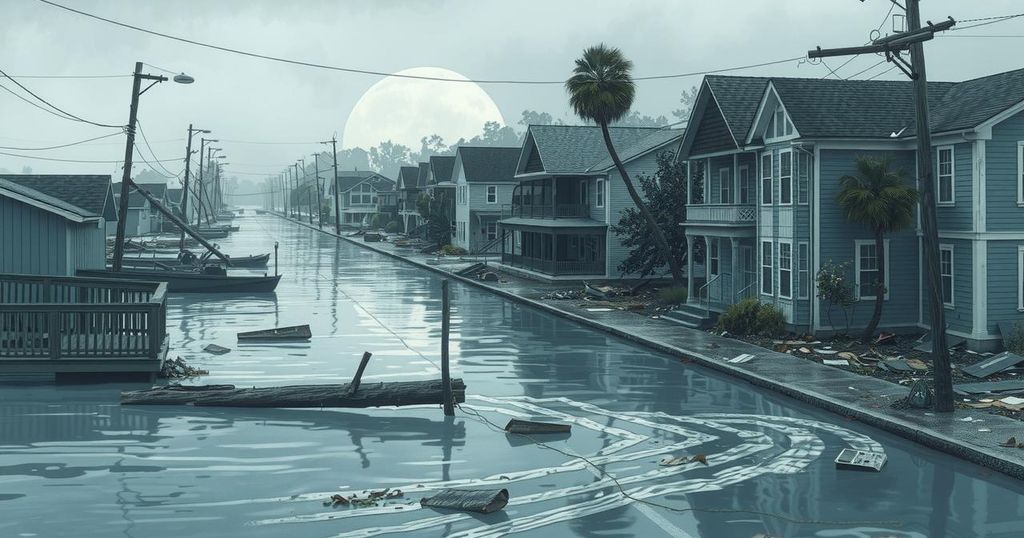Hurricane Erick Hits Mexico Resort Towns, Causing Two Fatalities
Hurricane Erick, a Category 3 storm, made landfall on Mexico’s Pacific coast, resulting in at least two deaths and extensive flooding. Recovery efforts are underway in the affected resort towns of Acapulco and Puerto Escondido as local authorities assess the damage and aid those impacted. In addition, other recent natural disasters in the region raise concerns about disaster preparedness and resilience.
Hurricane Erick made landfall as a powerful Category 3 hurricane on Thursday morning, striking Mexico’s Pacific coastline between the popular resort towns of Acapulco and Puerto Escondido. The storm wreaked significant havoc, leading to confirmed reports of at least two fatalities as a result of its rampage. Eyewitness video footage depicts local communities grappling with intense floodwaters and the subsequent messy aftermath requiring extensive clean-up efforts.
The situation remains critical, as communities face the daunting task of recovery after the storm’s battering. Authorities are actively working to assess damage and provide assistance to those affected by the storm. Roads have been inundated, and many residents are without power as restoration efforts begin. This weather event has highlighted the vulnerability of coastal towns that rely on both tourism and natural beauty, but are now dealing with natural disasters like this.
In related news, the region has been shaken not only by the hurricane but also by seismic activities. Just days ago, a 5.6 magnitude earthquake rocked Lima, Peru, instilling panic as people fled from the city’s cathedral during mass. Local authorities are still assessing damage from that event which added to the string of natural challenges faced by Latin America recently.
Communities across the continent continue to demonstrate resilience in the face of natural disasters. Just last month, a significant landslide in Peru, triggered by a glacial lagoon overflow, resulted in fatalities and substantial property damage. Meanwhile, the authorities in Brazil are dealing with a myriad of issues, including wildlife rescue related to a recent chemical spill in São Paulo.
This series of natural calamities presents a reminder of nature’s unpredictability and the ongoing challenges for those living in vulnerable regions. Ongoing international support and disaster readiness will be key in ensuring these communities can withstand and recover from future storms and seismic events. The collective response from emergency services and local governments in marginalized areas will be tested as they maneuver through both immediate relief and long-term recovery plans.
As humanity faces these forces of nature, recovery efforts will highlight the importance of preparedness, resilience, and the importance of supporting one another in difficult times.
While Hurricane Erick’s impact will be felt for some time, communities on the ground are already beginning the hard work of rebuilding and addressing the challenges left in the wake of the storm. It is a reminder that when disaster strikes, the strength of a community truly shines through.
Hurricane Erick has left a significant mark on the Mexican Pacific coast, leading to fatalities and widespread flooding. As recovery efforts begin, communities are faced with the challenges of rebuilding. Additionally, shake-ups in nearby regions like Lima, Peru, and ongoing environmental concerns in Brazil add layers to the ongoing narrative of resilience in Latin America. These occurrences urge a call for preparedness in the face of nature’s unpredictability and emphasize the collective strength of affected communities.
Original Source: www.bbc.com




Post Comment